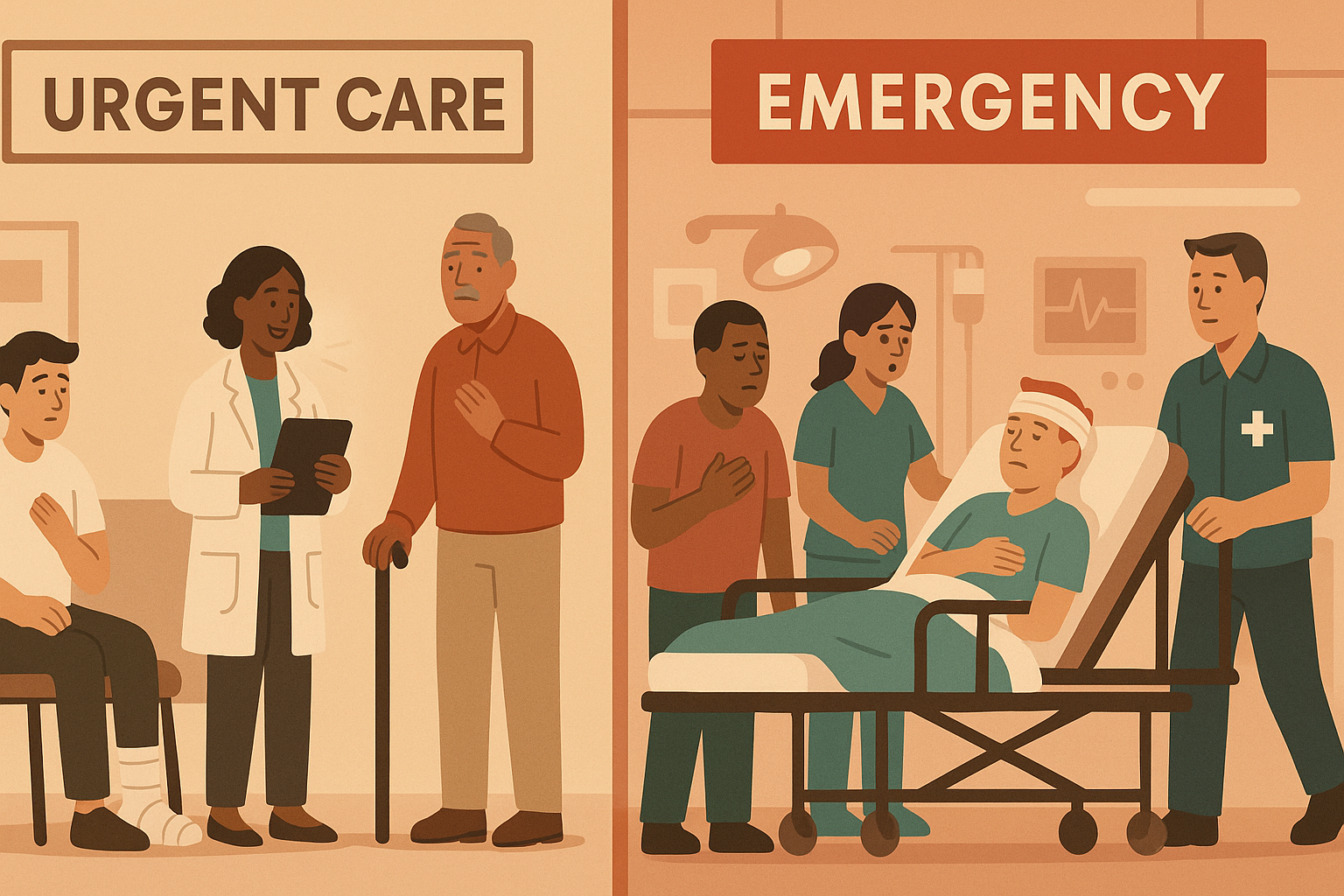
Urgent Care or ER? How to Know Where to Go When Every Second Counts
When a medical issue pops up, your first thought might be: “Should I go to urgent care or the emergency room?” The answer depends on the severity of your symptoms—and knowing the difference could save time, money, and even your life.
What’s the Difference Between Urgent Care and the ER?
-
Urgent Care clinics treat non-life-threatening conditions that still need prompt attention. These facilities are ideal for common illnesses, minor injuries, and after-hours care.
-
Emergency Rooms are equipped to handle severe, life-threatening conditions. They are open 24/7 with access to advanced diagnostics, surgery, and specialized care.
Choose Urgent Care for These Common Situations:
-
Minor cuts that may need stitches
-
Sprains and simple fractures
-
Ear infections, sore throats, or sinus problems
-
Fever, nausea, or flu-like symptoms
-
Allergic reactions (non-severe)
-
Mild asthma attacks
-
Urinary tract infections
-
Skin rashes or poison ivy
-
School, sports, and DOT physicals
Bonus: Many urgent care centers offer same-day walk-ins and short wait times, which makes them a smart, convenient choice.
Choose the ER If You Experience:
-
Chest pain or difficulty breathing
-
Severe bleeding or head trauma
-
Sudden numbness or weakness (especially on one side)
-
Loss of consciousness
-
Serious burns or injuries from an accident
-
Seizures or severe confusion
-
Broken bones sticking through the skin
-
Suicidal thoughts or overdose
If you ever feel unsure, err on the side of caution—or call 911.
Cost and Wait Time:
-
Urgent Care: Lower costs, shorter wait times, often covered by insurance.
-
ER: Higher costs due to emergency-level services and longer waits for non-critical issues.
Quick Rule of Thumb:
If it can wait a few hours, it’s probably urgent care.
If it can’t wait a few minutes, go to the ER.
Final Thought:
Understanding the difference helps you make faster, smarter choices. Urgent care centers, like Airline Care Clinic, are a reliable option for most everyday health concerns—especially when your primary doctor’s office is closed.
continue reading

